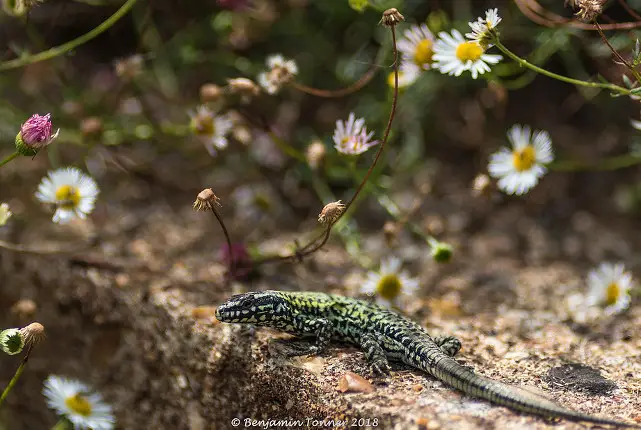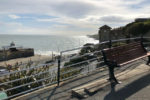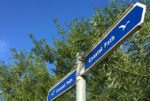Earlier in the week OnTheWight reported on the concerns raised over the possible connection of herbicide spraying at roadsides on the Isle of Wight and the death of wall lizards and other wildlife.
OnTheWight got in touch with the Isle of Wight council about the concerns and asked three simple questions.
- Will the IWC ask Island Roads to stop spraying?
- Will toxicity of herbicides used be tested?
- Will IWC seek expert advice following the discovery?
Isle of Wight Council “is satisfied”
In response, a council spokesperson said:
“The Isle of Wight Council is satisfied at the moment that the use of herbicides by Island Roads is necessary and proportional, and in line with what is agreed in the contract. The herbicide used is, and must continue to be, a herbicide approved for use in the UK in public places.
“This approval is given only following extensive testing at a national and international level. The Isle of Wight Council has no ability to conduct its own independent tests or investigations into the effects of such herbicides, but we are aware of and are monitoring the current debate and concern about herbicide use on the wider environment.
“If there is a change in legislation or code of practice then the Isle of Wight Council and its contractors will abide by those new requirements, including changing or stopping the use of herbicides if necessary.”
Jones: “Strong circumstantial evidence”
Steve Jones, who raised the concerns, responded,
“The toxicity of these chemicals to UK reptiles has not been tested, although research by international researchers have found them to adversely affect both reptiles and amphibians. I have strong circumstantial evidence of direct harmful effects, in the form of both several moribund, and one dead lizard, all found within millimetres of desiccated, recently sprayed vegetation at the bases of walls in Ventnor.
“I cannot of course prove that spraying harmed these reptiles. I can state, though, that killing the vegetation upon which Ventnor’s wall lizards, slow worms and common lizards depend will likely harm them too.”
Reiterate call to cease spraying
He went on to say,
“To say that destroying their habitat has no effect is, of course, wrong. I suggest that spraying as currently practiced in Ventnor/St Lawrence should cease pending confirmation that the chemical is neither directly harmful to lizards and amphibians, and to their habitat.”
Ward: IW being “visited by a specialist”
Islander Naomi Hyland also wrote to Island Roads, the MP and the Isle of Wight council. Cllr Ian Ward told her,
“I can assure you that we are taking this matter of managing hedges and verges seriously.
“This week we are being visited by a specialist in this field who is going to advice us about how these issues have been managed in other areas.”
Call for investigation
Naomi told OnTheWight,
“The fact of the matter is that the lizards have been found dead after the herbicide has been sprayed. Island Roads have not given any reassurances that they are looking into this and are going to stop spraying this area.
“I would feel better if they acknowledge that the lizards have died and stop using the product.
“If they could provide the product name then other companies can make sure that they don’t cause the same impact. If they refuse to admit it is their fault, then an investigation should be done for reason of death of the lizards (toxicity tests etc).
Why not seek alternatives?
She added,
“I am concerned that the herbicides are killing the habitats of these creatures and therefore Island populations of these reptiles are dying out.
“I would ask for what reason is this herbicide used? And can an alternative non chemical option be used to protect the islands wildlife and biodiversity?”
OnTheWight has requested the product name of the herbicide being used and will report back once we have an answer.
Image: © Benjamin Tonner





